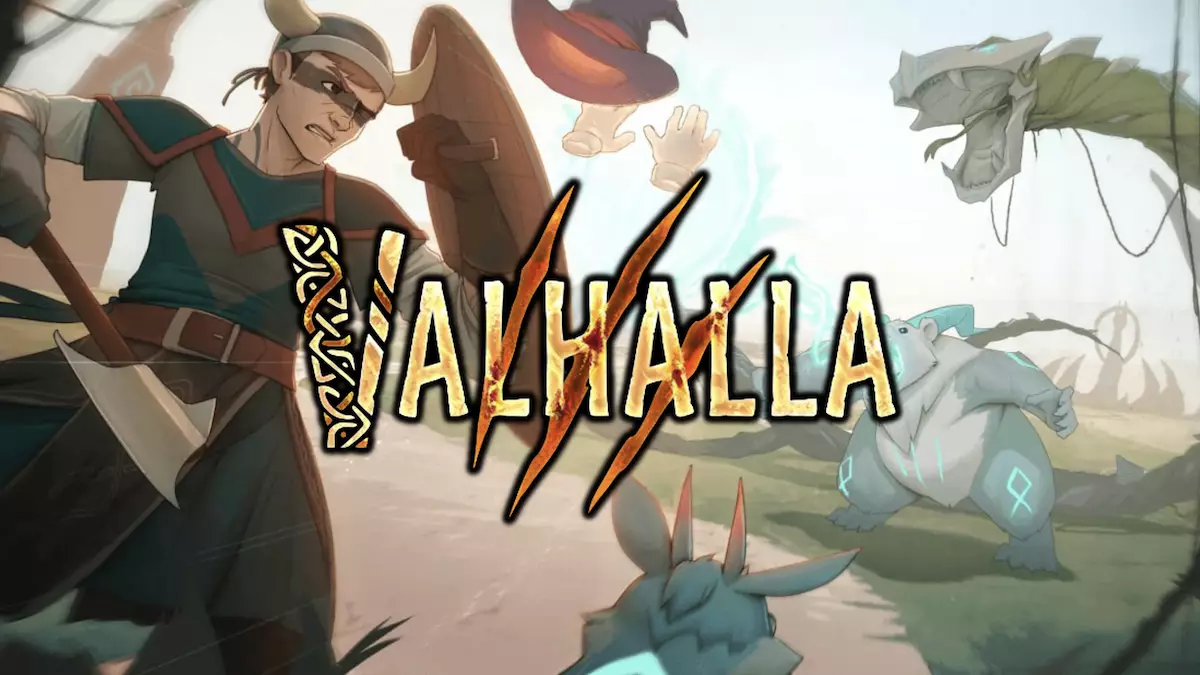Valhalla emerges as a groundbreaking title in the landscape of Web3 gaming, diverging from traditional MMORPGs by introducing an immersive open world underpinned by blockchain technology. Inspired by Norse mythology, this game presents a unique ecosystem where players embody Viking warriors, navigating through a richly designed universe filled with quests, battles, and captivating narratives. The innovative mechanics not only promote exploration and strategic combat but also provide opportunities for players to earn cryptocurrency, fundamentally reshaping interactions within the digital realm.
In Valhalla, players find themselves in a vibrant metaverse populated by mystical beings known as Veras. These unique digital assets serve not only as companions in battle but also as pivotal components of the game’s economy. Each player’s journey is marked by critical decisions, whether in exploring expansive environments or engaging in tactical, turn-based combat. This system emphasizes the importance of strategy, as each move requires careful consideration, transforming ordinary fights into tests of skill and tactical prowess.
The orientation toward strategic gameplay is further enhanced by an array of quests and challenges scattered throughout the world, allowing gamers to immerse themselves in the Viking saga. Towns bustling with activity provide marketplaces for trading, where players can buy, sell, and interact with both NPCs and fellow gamers. As players cultivate their skills and experience, they can engage in dynamic adversarial encounters, earning in-game rewards and currency through competitive play, such as Runix or Onyx.
At its core, Valhalla operates on a play-to-earn model that incentivizes gameplay through tangible economic rewards. Once the game’s mainnet launches, players can earn FLOKI tokens through various activities, including quest completions and battles. The potential for earning is closely tied to the player’s strategic decisions and the rarity of their Veras, which can be captured and upgraded, adding another layer of depth to gameplay.
Crucially, these digital assets surpass mere collectibles; they can appreciate in value, as players trade them on NFT platforms, further intertwining gaming with financial mechanics. The potential for profit makes Valhalla not just a pastime but a viable investment opportunity, attracting a new audience to the world of online gaming.
Valhalla’s commitment to fostering a thriving community is evident through regular events and tournaments that enhance player engagement. For instance, the ‘Unleash the Thunder’ event encourages players to collect Storm Fragments, with substantial rewards up for grabs. Such dynamic competitions not only bolster community interaction but also contribute to the game’s evolving landscape.
As players work collaboratively and competitively toward shared objectives, these events create a sense of unity and competition, further enriching the gameplay experience. The integration of leaderboards adds another layer of excitement, driving players to hone their skills and strive for recognition within the Valhalla community.
What truly distinguishes Valhalla from traditional MMORPGs is its foundation on decentralized blockchain technology. This innovation grants players genuine ownership of in-game assets, fundamentally altering the economic structure of gaming. Each transaction within the game is underpinned by blockchain security, fostering trust and transparency absent in centralized gaming ecosystems.
The decentralized economy empowers players to determine the value of their virtual assets, establishing a system where market dynamics reflect genuine demand and supply. Such a transformation not only enhances player motivation but also requires an understanding of broader market principles, deepening their gaming experience.
Currently in its Testnet stage, Valhalla is poised for further refinement as developers integrate player feedback and test various features. This critical phase allows the team to ensure gameplay stability and address potential bugs before the full launch. The anticipation surrounding its impending release highlights the significant potential for Valhalla to redefine Web3 gaming conventions.
For new players, initial steps to enter this vibrant world include setting up a Web3 wallet, emphasizing the importance of securing one’s assets and progress. As players establish their Viking personas and begin their journey, the game promises a rich tapestry of adventure, community involvement, and the potential to earn real-world value.
Valhalla serves as a paradigm shift in the gaming community, merging the excitement of MMORPGs with the advantages of blockchain technology. By granting players true ownership of in-game assets and introducing a play-to-earn model, it is clear that Valhalla is not just a game but a movement toward decentralized, player-driven economies. As it prepares for its future, Valhalla has the potential to lead the charge in creating a new standard for interactive entertainment, blending strategy, community, and financial opportunity in unprecedented ways.















